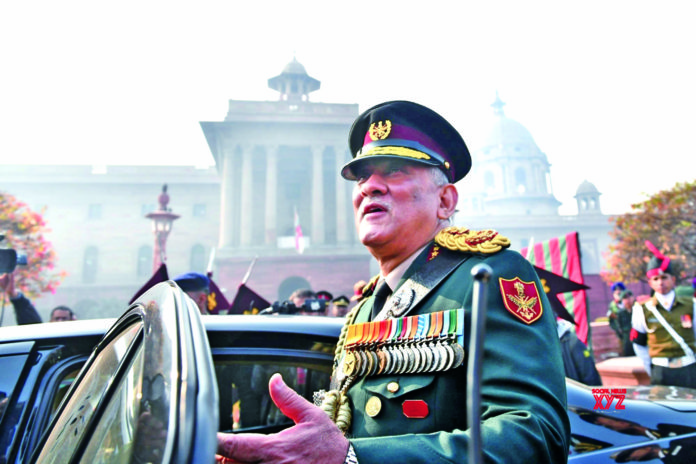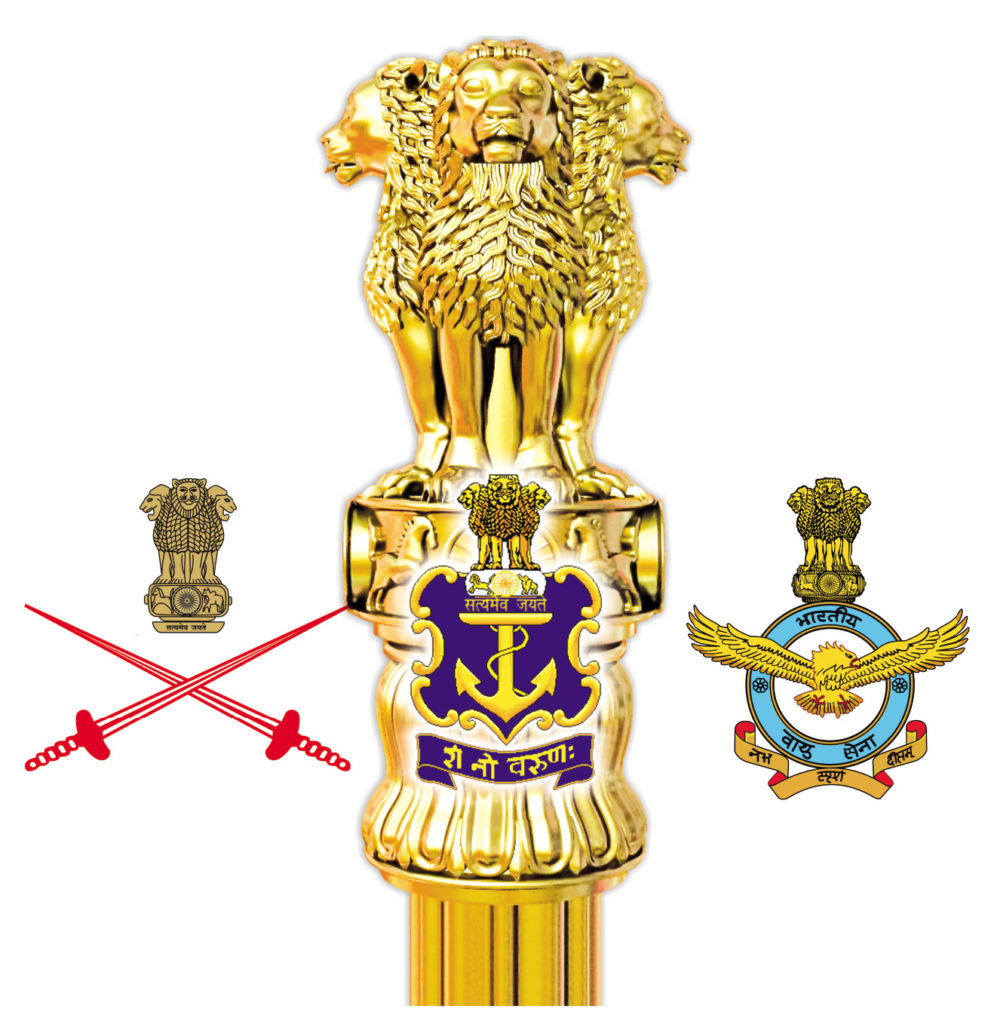The appointment of a Chief of Defence Staff (CDS) will address the fragmented approach of the armed forces and bring about much-needed synergy. The existing model for cross-service cooperation (Chairman, CoSC) was weak, with each service working in its own silo. The efforts for jointmanship in the military were proceeding slowly, resulting in duplication of efforts, wastage of resources and delay in decision making.
Inter-services issues and the reluctance of the three Services to let go of their respective turfs were some of the biggest hurdles in achieving greater jointmanship. The CDS will also be the permanent chairman of the Chiefs of Staff Committee (COSC). Until now, the COSC chairmanship was held in rotation by the senior-most service chief. It is no secret that Service chiefs have a tendency to be driven by the interests of their own Service. The creation of the CDS is therefore seen as a significant reform in higher defence management.
The Need
The existing model for cross-service cooperation was weak, with each Service working in its own silo. The efforts for jointmantship in the military were proceeding slowly, resulting in duplication of efforts, wastage of resources and delay in decision making. The appointment of a CDS will address the fragmented approach of the forces and bring about synergy at a time when the nature of warfare is evolving swiftly.
The Service Chiefs
The three chiefs will continue to report to the defence minister. They will not report to the COS, although it is widely accepted that he will be a first among equals. The CDS will be the principal military adviser to the defence minister on tri-services matters. The three military chiefs will continue to advise the minister exclusively on issues concerning their respective services. While the CDS will be in charge of tri-services organisations, their military command will be under the chief of the duly notified service. However, tri-services agencies and commands related to cyber, space and special operations will be under the command of the CDS.
Long Term Goals
The CDS’ first task will be to lead the integration of the different services, who have operated in silos, have got embroiled in inter-services disputes, and have been reluctant to let go of their own institutional interests. The CDS will have to build trust between the three Services and then use that to push for greater integration and jointness in training, capabilities, acquisitions, operations and planning. The nature of threats has changes with the newer technologies; so has the nature of warfare where distinctions between land, air and waters, and now cyber, are blurred. Ensuring India’s forces are prepared is now the CDS’ job, along with that of the respective Service chiefs.
The CDS will be responsible for establishment of theatre/joint commands. Theaterisation refers to placing under a Theatre Commander, specific units of the army, the navy, and the air force. There is stiff resistance from the IAF to theaterisation, or setting up of integrated commands where the assets of all three defence arms will come under the operational control of a three-star officer from any of the three services, depending on the function assigned to that command. In another important role, he will assign inter-services prioritisation to capital acquisition proposals based on the anticipated budget at a time when the military is facing a funding crisis,
The Challenges
The idea of creating the CDS’ post is that India should not have a fragmented approach. The entire military power must to work in unison. The three Services should move simultaneously at the same pace.
The second core challenge for the CDS is to become an effective link between the Services and the civilian bureaucracy, for the relationship has been mired in distrust. Being housed within the ministry will help. The Services are resentful that those who lack expertise and experience take all the decisions, while sitting in South Block, and ignore genuine concerns of the armed personnel. The bureaucrats see many demands of the Services and the leadership as unreasonable, and believe that political control of the armed forces will inevitably mean administrative oversight. The CDS will have to mediate these relationships and ensure that all sides remain committed to the big picture – of making India secure, while the forces continue to operate under the democratic framework of civilian control.
The charter of the CDS, if implemented properly, will prepare the 15-lakh strong armed forces for the wars of the future. The CDS is mandated to ensure the Army, Navy and IAF, which often pull in different directions, truly integrate to slash wasteful expenditure amidst the ongoing severe fund crunch for military modernization because of the ballooning pay and pension bills.
Over 70 countries like the US, UK, France and Germany, among others, have a CDS-like post for integration in military planning and operations. In the US, for instance, the chairman of joint chiefs of staff is the highest-ranking military officer and principal military advisor to President. But chiefs of the combatant theatre commands, who handle different parts of the globe, also report directly to the political leadership.
This is needed because India currently has 17 single-Service commands (Army 7, IAF 7 and Navy 3), while there are only two tri-Service commands in the shape of the Andaman & Nicobar Command and the Strategic Forces Command to handle nuclear weapons. Theatre commands, where all the assets and manpower of the Army, Navy and Air Force are placed under one operational commander, are cost-effective, save resources and prepare forces for integrated operations.
The most far-reaching and consequential job allocated to the CDS will be the restructuring of 17 single-service military commands, which currently operate independently, into tri-service commands that include all the army, navy and air force components needed for combat operations.
“[CDS will facilitate] restructuring of military commands for optimal utilisation of resources by bringing about jointness in operations, including through establishment of joint/theatre commands,” said the government release.
For now, the CDS will only command the new cyber and space commands. “Tri-service agencies/organisations/commands related to cyber and space will be under the command of the CDS,” said the notification.
==
CDS: Roles & Responsibilities
• Act as the principal military adviser to the Raksha Mantri (RM) on tri-Service matters (Army, Navy & IAF chiefs will continue to advise the RM on matters concerning their forces).
• Head a new Department of Military Affairs (will include the armed forces) within MoD.
• Will also be the permanent chairman of the chiefs of staff committee, but will not exercise any military command (three Service chiefs will continue to have full operational control of their forces).
• Will function as the military advisor to the PM-led Nuclear Command Authority.
• Will administer all tri-Service organizations, with direct command over space & cyberspace agencies.
• Facilitate restructuring of military commands to bring jointness in operations, including establishment of theatre commands.
• Provide integrated inputs to relevant authorities. Will be member of Defence Acquisitions Council &Defence Planning Committee.
• Assign inter-Service prioritization to arms procurements based on the anticipated budget.
• Bring about reforms in the functioning of three Services by augmenting combat capabilities & reducing wasteful expenditure.
• Bring jointness in operations, logistics, transport, training, support services, communications, repairs, maintenance etc of the 3 Services within 3 years of the first CDS assuming office.
• Evaluate plans for ‘Out of Area Contingencies’ as well as other contingencies such as humanitarian assistance & disaster relief.
• Implement 5-Year Defence Capital Acquisition Plans, and 2-Year roll-on annual acquisition plans (AAP), as a follow-up of Integrated Capability Development Plan (ICDP).
• Integrate and rationalize international cooperation plans.
==
Govt Creates Department of Military Affairs
The appointment of Gen Bipin Rawat as the first chief of defence staff (CDS) was accompanied with the notification of the creation of the Department of Military Affairs (DMA) in the Ministry of Defence (MoD) with Gen Rawat as the secretary of the department.
A day after the announcement, prime minister Narendra Modi tweeted, “Creation of the Department of Military Affairs with requisite military expertise and institutionalisation of the post of CDS is a momentous and comprehensive reform that will help our country face the ever-changing challenges of modern warfare.”
The DMA, having a mix of military and civilians, will deal with the three Services and HQ-Integrated Defence Staff (IDS), Territorial Army, works relating to Services and procurements, except capital acquisitions. The DMA will promote inter-service jointness in planning, integrated requirements, restructuring of military commands and indigenous equipment.
President Ram Nath Kovind approved changes in the Government of India (Allocation of Business) Rules, 1961, and following this, the department was set up.
With the latest changes, the defence ministry will have five departments under it and these are the Department of Defence, the Department of Military Affairs, the Department of Defence Production, the Department Defence Research and Development, an order from the Department of Exservicemen said.
The Department of Military Affairs will have an integrated headquarters of the Defence Ministry comprising of the Army HQ, the Naval HQ, the Air HQ, the Defence Staff HQ and the Territorial Army.
The DMA will function parallel to the Department of Defence (DoD) headed by the defence secretary, and other departments. The CDS will be one secretary among equals of the other departments headed by bureaucrats. This downgrades the four-star rank in protocol, though the CDS will draw higher pay. Till now, Service Chiefs were ranked alongside the Cabinet Secretary, which was higher than the secretaries in the MoD, including the defence secretary.
The composition of the DMA has not been announced and will take time to form and function. It will, however, include the armed forces and an “appropriate mix of military and civilian officers at every level” in a bid to also bridge the festering civil-military divide.
The CDS will enjoy financial powers. This will be the first uniformed officer since 1950-when the armed forces were structured after Independence – to enjoy such powers.



















